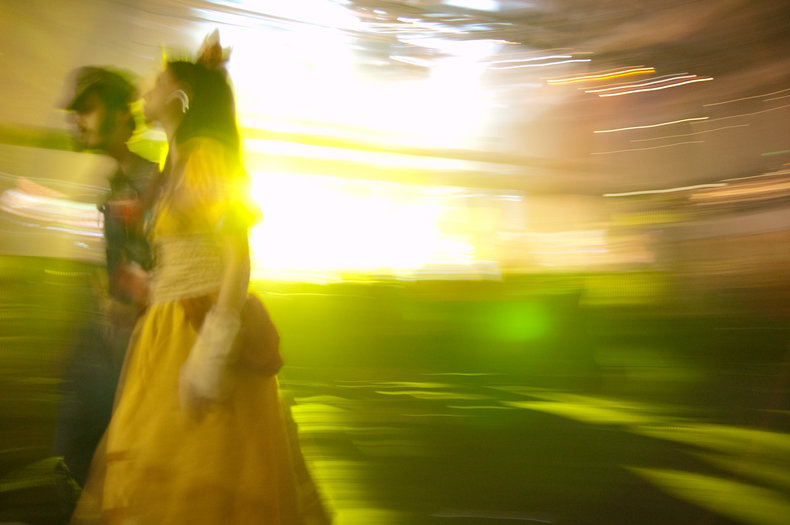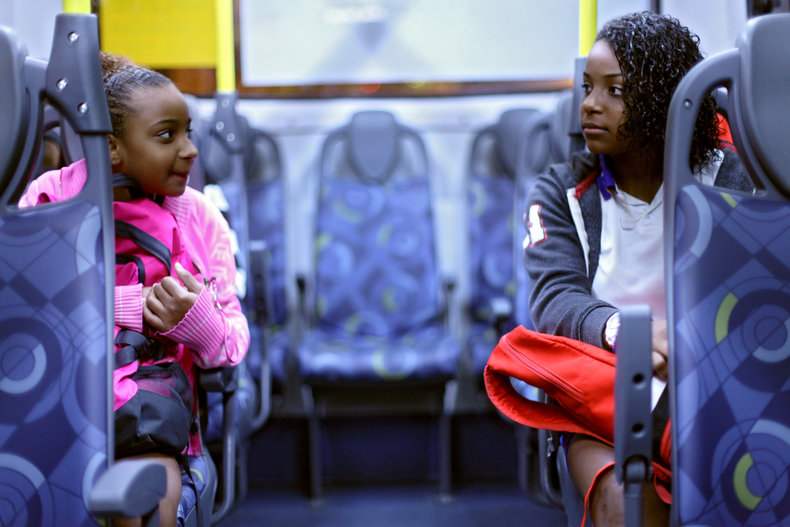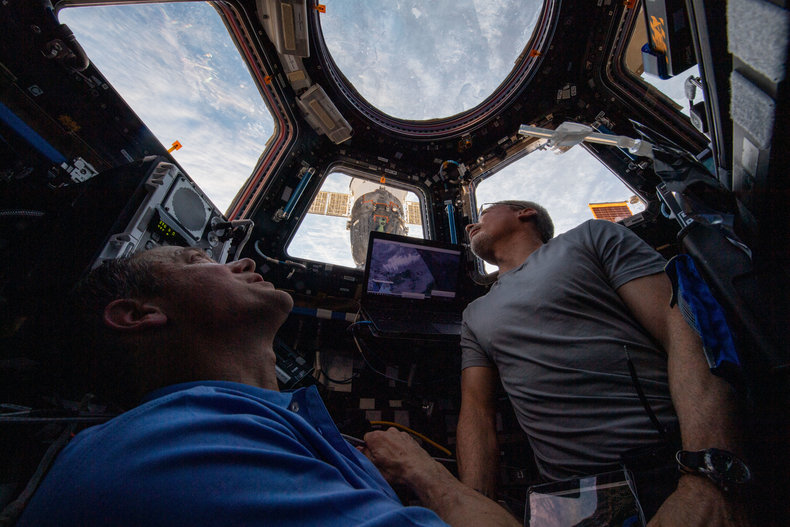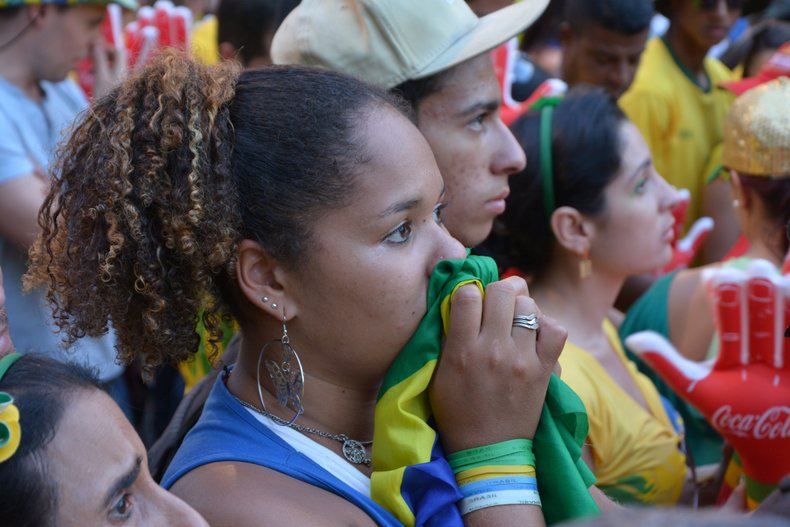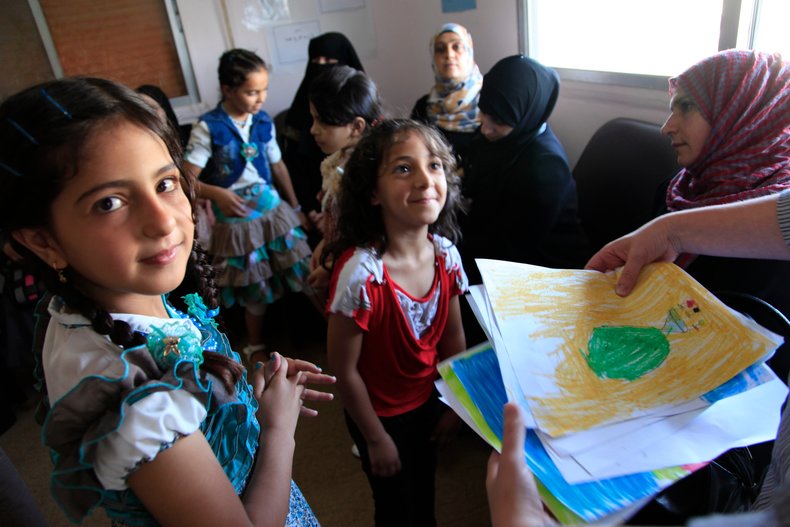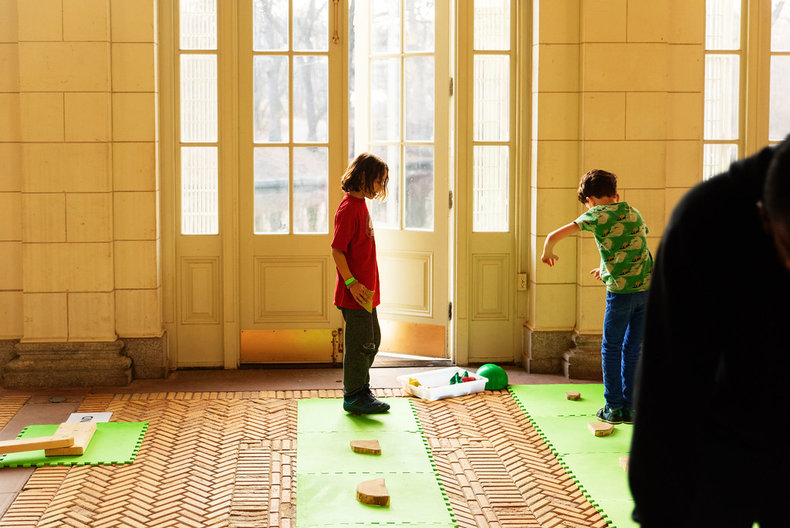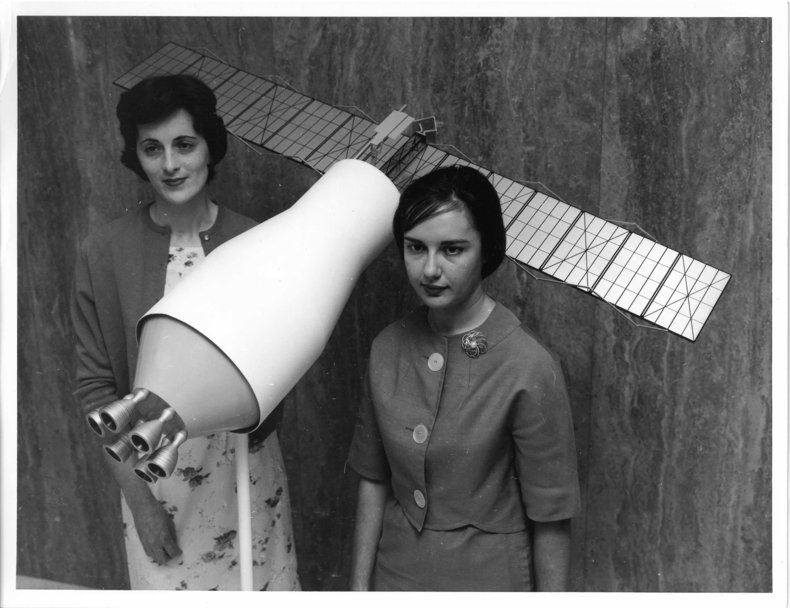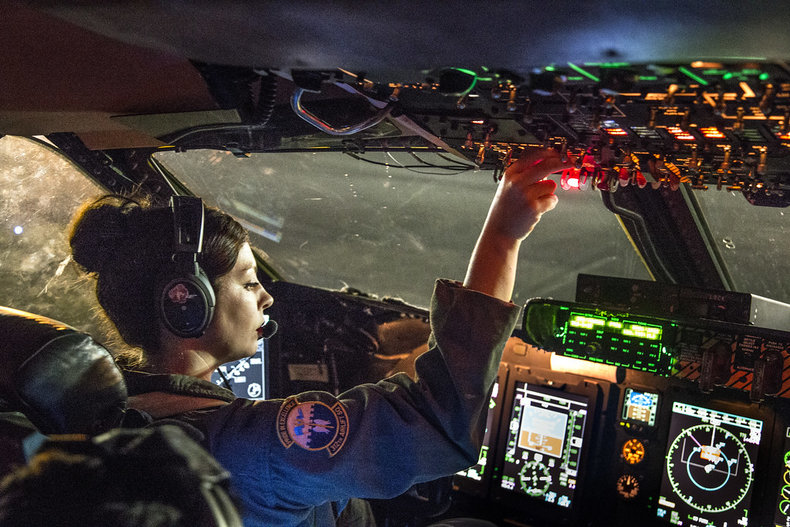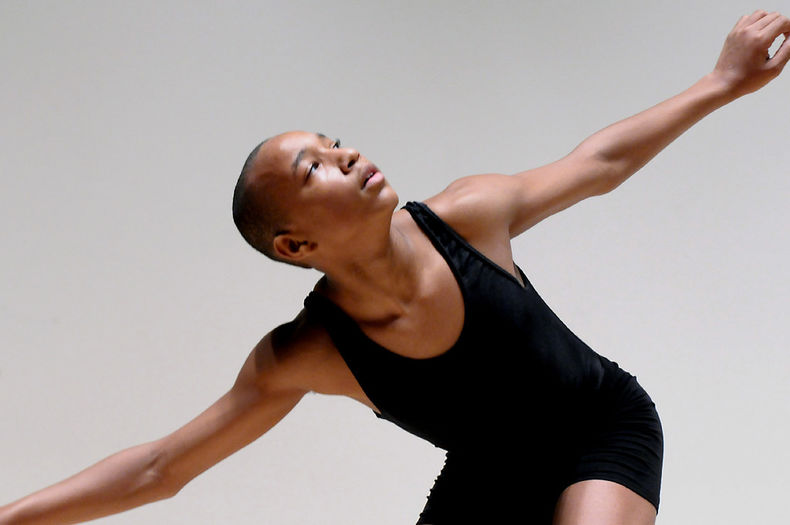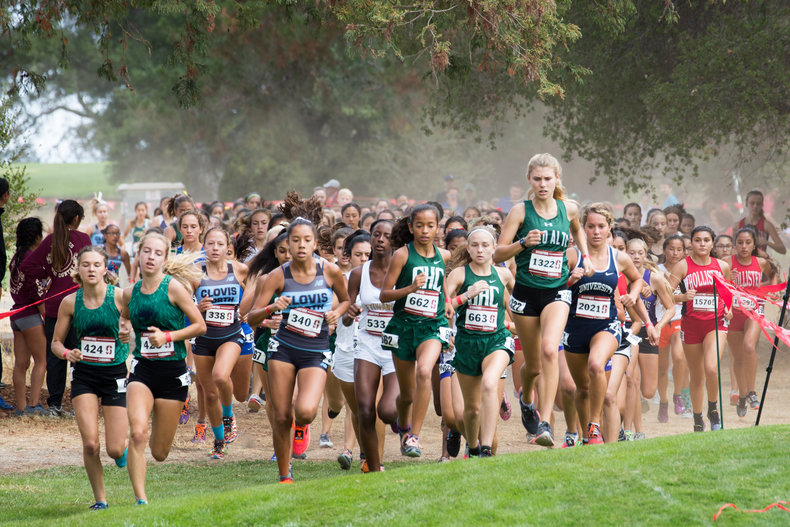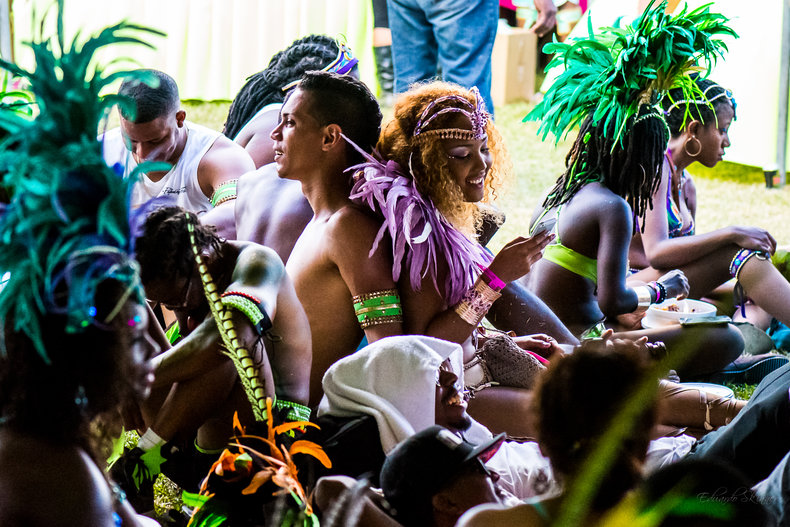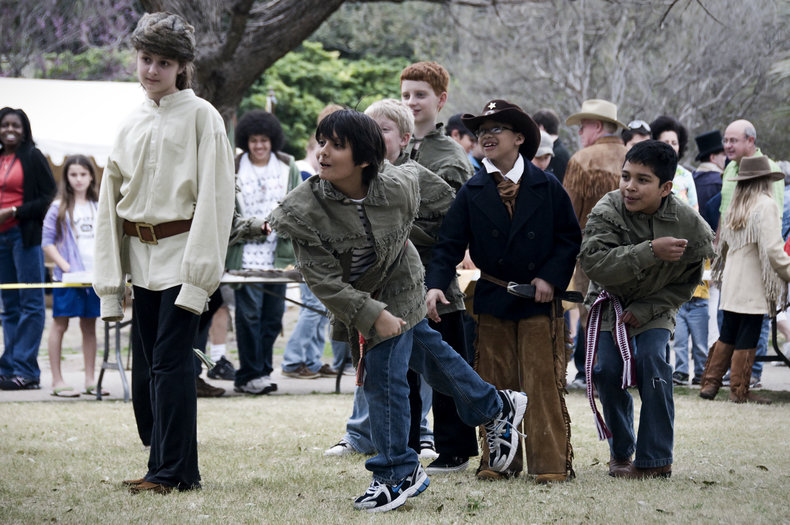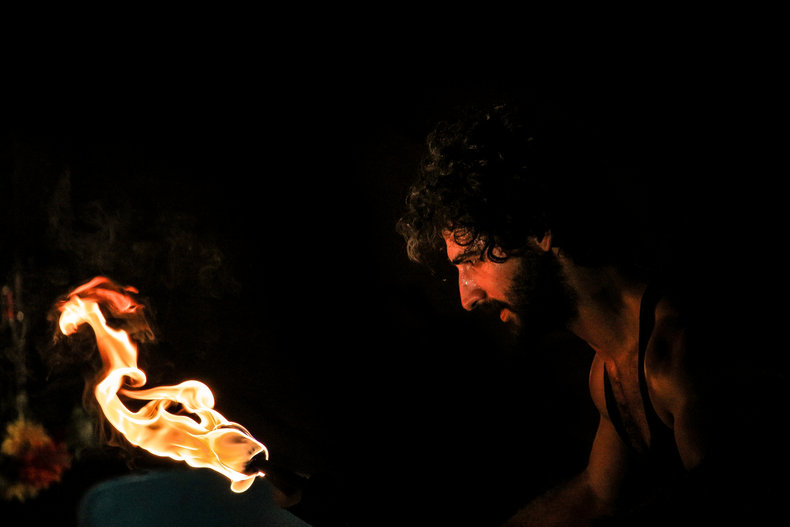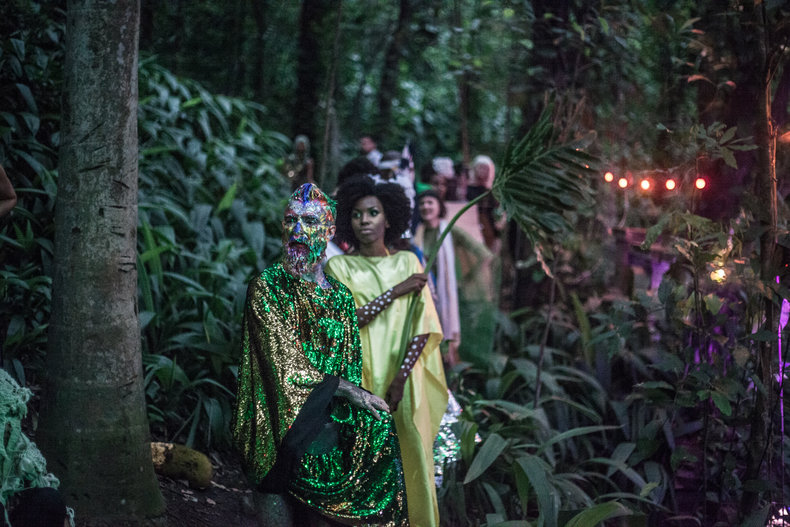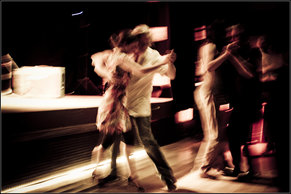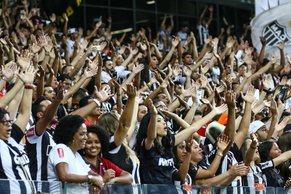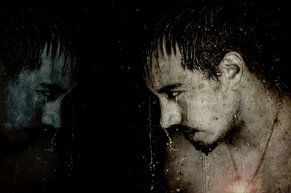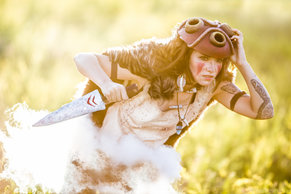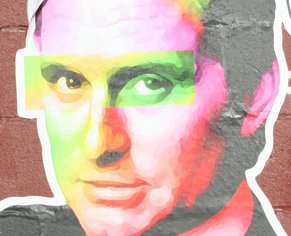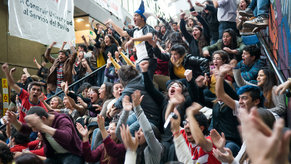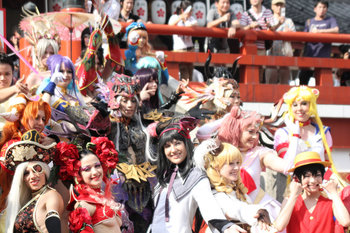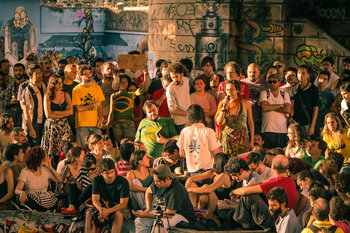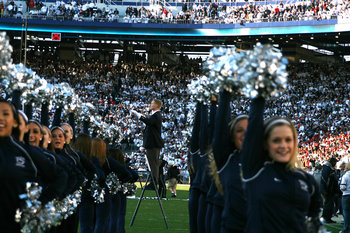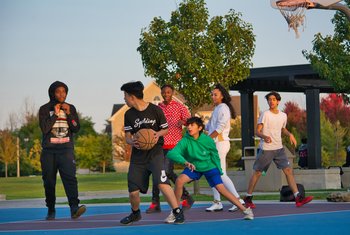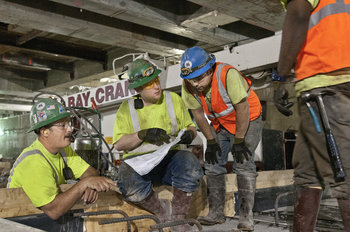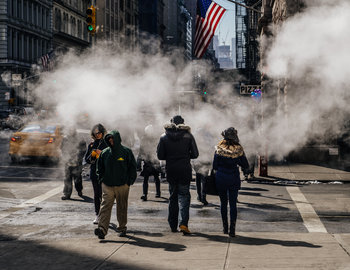|
| |
A human being is any member of the mammalian species Homo sapiens -- a relatively new species that has been around for about 315,000 years. Humans spent most of their history as nomadic hunter-gatherers. Modern humans have the following characteristics.
AbstractionAbstraction is the ability to use concepts that differ from concrete reality. For example, "respect" is an abstract concept that has no specific physical manifestation but is nonetheless real. Abstraction is arguably the root of our extraordinary success and dominance as a species.LanguageLanguage is a system of communication that allows concepts to be transmitted from person to person and generation to generation. This allows for an evolution of ideas whereby useful concepts are encoded in a language and taught to everyone who speaks that language. Languages interact and influence each other such that each language represents an immense collection of knowledge and heritage.
CuriosityHumans crave information and discovery. They explore, experiment, analyze, theorize, synthesize and debate in order to cultivate knowledge.ForethoughtForethought is the ability to think about the near and distant future and to plan ahead accordingly.Emotion & MoodsEmotions and moods are modes of thinking that color all thought for a period of time. This gives humans an incredible depth and variety of thought as each individual has many modes of thinking.NeedsHumans have needs that range from basic physical needs such as air, water, food, shelter, clothing, safety and security up to higher level needs such as social inclusion, respect, love and self-fulfillment.ChildhoodHumans are unusually helpless as babies and young children such that they require an extended childhood to mature. Humans continue to mature after childhood. This remarkably long development period allows humans to devote decades to learning, play and risk taking in a protected environment. Social BehaviorHumans form social groups and demonstrate the ability to cooperate as very large groups in structured ways with extremely specialized roles and complex channels of communication. As groups, humans decide what to do with a process known as politics that generates creative tension.Design & ProductionHumans use their imagination and intentionality to design and produce things. They transform their environment and make tools.Fine Motor SkillsHumans have highly developed fine motor skills with the ability to coordinate vision and the precise movement of the body, particularly the hands. This combined with their talent for building tools makes humans unusually productive and capable.DisciplineDiscipline is the human ability to focus on tasks even if they are demanding or uninteresting. This allows for the mastery of talent and refinement of work.CompetitionHumans appear to be inherently competitive and engage in both serious competitions such as markets and playful competition such as games and sport.RiskHumans are remarkably talented at mitigating risk but have a strange relationship to risk whereby they demonstrate both bold risk taking and severe risk aversion. CultureHumans develop shared understanding and practices known as culture that emerges with the experiences of groups. HeritageHumans pass value down from the past known as heritage. For example, the architecture, traditions and knowledge that a generation leaves to all subsequent generations.PlayPlay is an activity that is pursued for joy as opposed to some serious goal. This is an integral part of human development and the human experience.ImaginationHumans can simulate things in their mind to imagine how the past could have been different and how the future might be.StorytellingHumans can communicate nonfactual information as stories. This is a means to communicate and share the products of imagination.IntentionalityIntentionality is the ability to be self-defining in that you establish your own goals and pursue them. Humans have this capacity.Intangible ExperienceAs humans can think in the abstract they are often detached from bland physical realities and needs whereby their goals reach into intangible realms. For example, humans build and interact in fully virtual worlds that simply do not exist in any physical way.IntrospectionIntrospection is the ability to examine one's own character, thinking, emotions and mood to try to understand the origin of one's own behavior. This allows humans to be self-aware at a deep level whereby they may understand their own mind and person.Philosophical AngstHumans are aware of their own mortality and ask questions regarding the nature and meaning of the universe and life. As humans are part of the universe so this is essentially the universe pondering itself.NotesThe characteristics above are common but not necessarily universal. For example, an individual human may not be particularly competitive.The characteristics above aren't necessarily unique to humans but are uniquely expressed in humans. For example, animals have culture but human cultures are far more complex.Historically, many theories related to human exceptionalism turned out to be incorrect. For example, it is a myth that animals can't see color such that color vision isn't unique to humans.
Human Behavior
This is the complete list of articles we have written about human behavior.
If you enjoyed this page, please consider bookmarking Simplicable.
ReferencesHublin, Jean-Jacques, et al. "New fossils from Jebel Irhoud, Morocco and the pan-African origin of Homo sapiens." Nature 546.7657 (2017): 289-292.
An overview of human behavior with examples.
An overview of humor with quotations as examples.
An overview of motivation with examples.
An overview of avoidance with examples.
An overview of social acceptance with examples.
A vocabulary for describing common moods.
An overview of positive experiences with examples.
The definition of human needs with examples.
A list of experiences.
The definition of society with examples.
An overview of power imbalance with examples.
An overview of family with examples.
An overview of status with examples.
An overview of social justice with examples.
The definition of social group with examples.
The definition of social institution with examples.
The definition of social good with examples.
TrendingThe most popular articles on Simplicable in the past day.
Recent posts or updates on Simplicable.
Site Map
© 2010-2023 Simplicable. All Rights Reserved. Reproduction of materials found on this site, in any form, without explicit permission is prohibited.
View credits & copyrights or citation information for this page.
|

